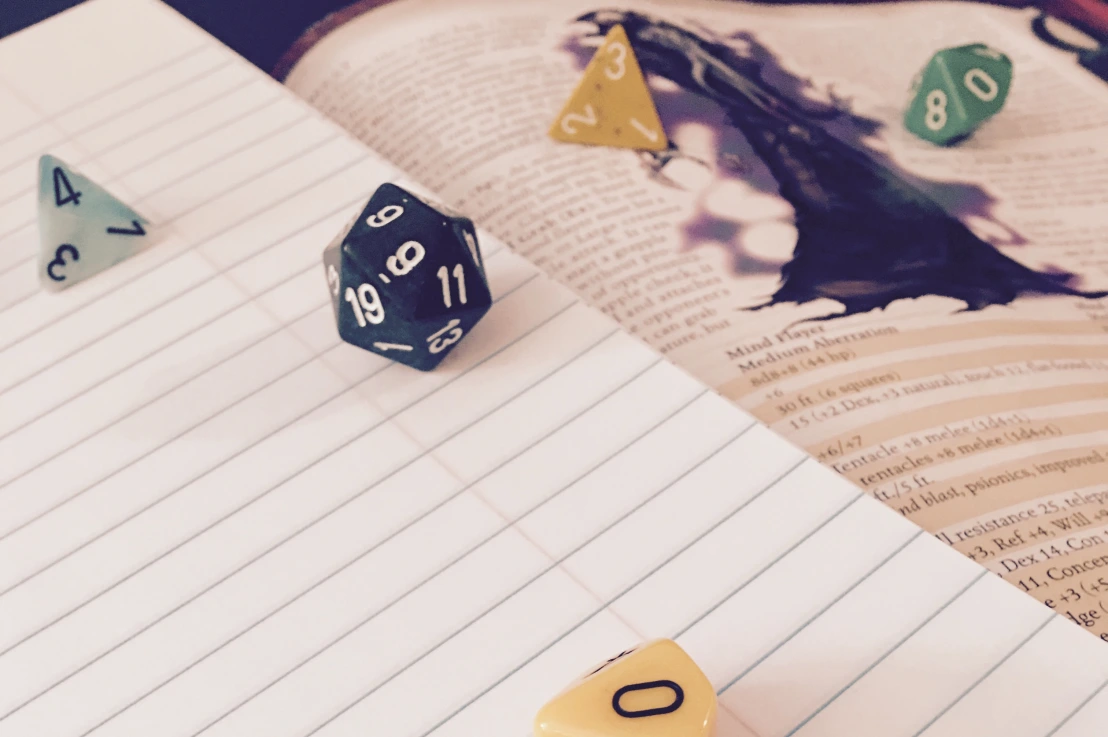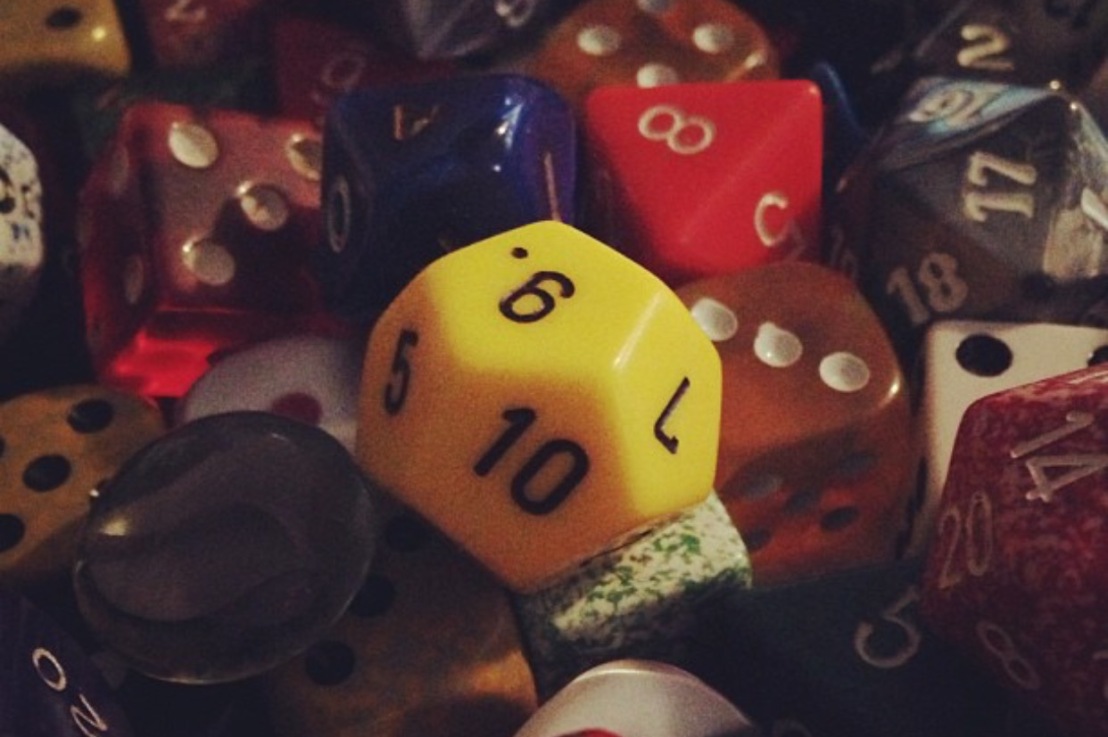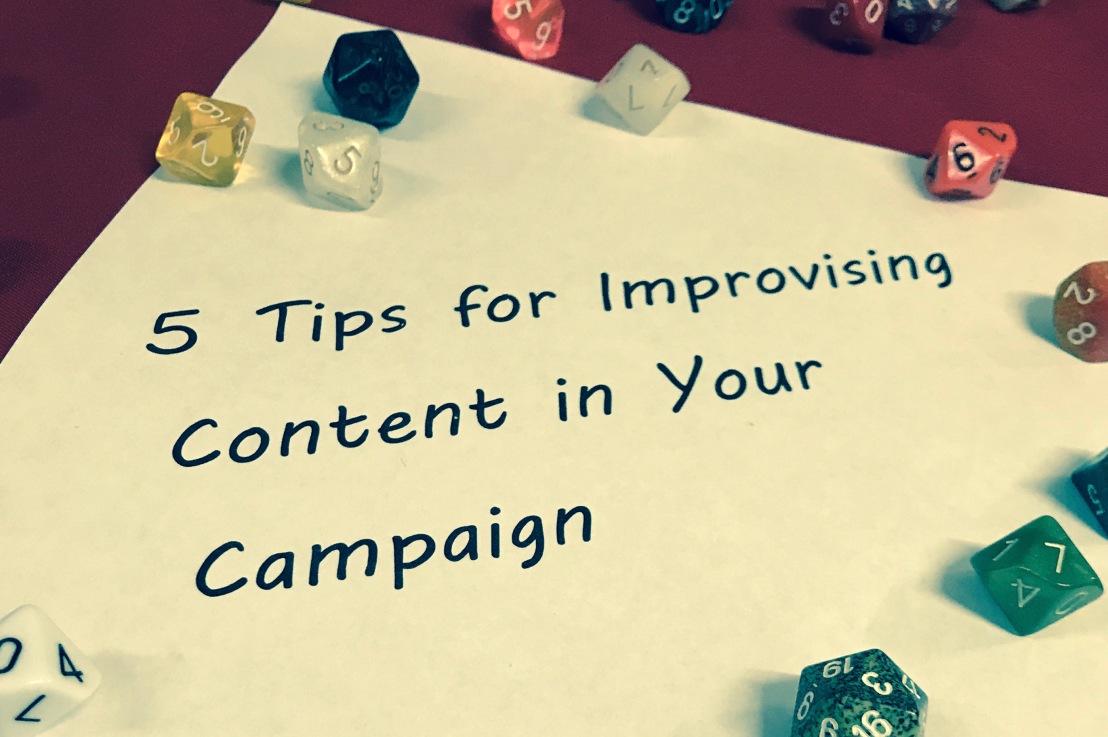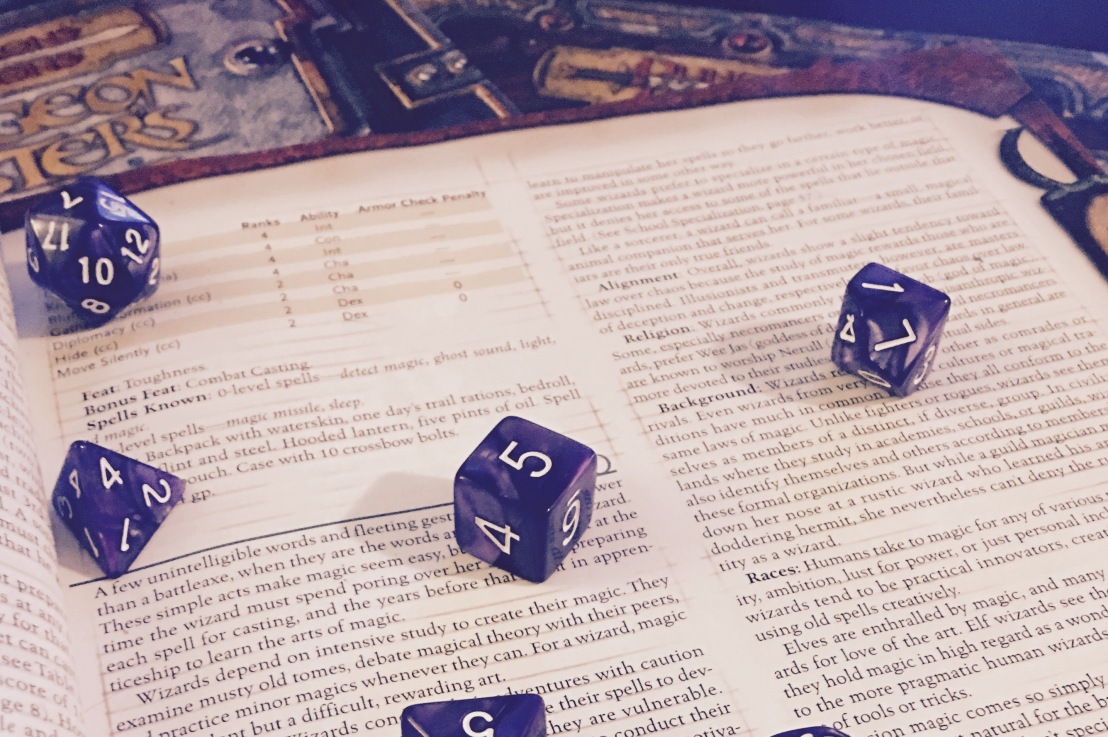Nothing quite compares to the euphoric rush of revealing that CR 16 Iron Golem you’ve been saving until the end of the dungeon. A hulking metallic monstrosity with the incredible strength, and of course all the damage immunities they could ft on the page. A great foe for any party to be certain, but what makes it so scary? It’s terrifying because it’s hard to kill, but it can’t really out-think the players. Even a monster with supreme intelligence, like a beholder, is going to have limitations there. Once the players leave the dungeon, many of these creatures cease to be threatening. Now, you could always alter your world in a way that allows for these creatures to openly mingle in society, but the fact remains that a standard world, whether published on homebrew, operates under the assumption that this isn’t the case.
Fighting monsters is a lot of fun, and an integral part of Dungeons & Dragons, and many other tabletop roleplaying games, but after having played games like Legend of the Five Rings, and Vampire the Masquerade, I’ve noticed that monsters lack a certain intimidating intelligence that humanoid enemies provide. Generally, the campaign’s villain, and a few lackys, provide most of the intelligent opposition, with the rest of the enemies being either aberration creatures or a few dummy thicc ogres that all share the same brain cell. These enemies have a place, but I see them used in places where I think intellectually superior enemies would fit better.
Take a dungeon filled filled with mindless ghouls for example. Yes, they’re scary, but once the ghouls are dead, there isn’t much more they can do to hurt the players. Now let’s consider another undead, like a vampire. The party marches into the keep and toasts him, end of story. Maybe someone even had to use a healing potion. But is it over? What if the vampire has friends in another court that will seek revenge on the party? What if the vampire is able to maintain control over his thralls even after death? Ghouls don’t have friends (sorry ghouls), and they don’t have the power to make thralls. Making intelligent enemies isn’t new, but I think they’re underutilized in most of the games I’ve either seen or heard stories about.
Using more intelligent, humanoid enemies that can not only match the players in fight methodology and tactics, but also serve as social and political rivals simply requires a loser grip on the “meat grinder” campaign that I know so many people love. If you want a story to be compelling for your players, I would suggest threatening them with more than just their lives. Character death should not be the only motivating force for players to do anything or to be afraid of something. Have an enemy whose a merchant who wants to frame the players for his insurance scam, or a corrupt guard captain that whose covering up a plot to assassinate his lord. Have some fun and be creative with your story telling instead of having your players kill giant rats for 6 hours a week.
Tag: dragons
Mind The Gap: Playing Games with Enormous Player Level Disparities
You’ve just joined a new roleplaying group! Mother of Gruumsh this is going to be fun! You walk into the dingy basement of your new acquaintance’s house (or maybe his parent’s house, we’re not here to judge). You sit down at the table, as you are introduced to the other players at the table. Steve! Who plays a level 13 Wizard from the sword coast! A wicked smart spell caster, and just so happens to be devilishly handsome as well! (Is he single? Stop it Goluptious Geek! You can’t afford another heartbreak…). Next is Aaron! The level 14 barbarian that can left an adult dragon and throw him across the room! Look at those MUSCLES! Now on to Sarah. The ever so sneaky level 14 rogue! You’ve never seen someone so stealthy! (Wait a minute…). Now it’s time to make YOUR character! Are you excited? Me too!
“Now make a level one character”
Wait…What? Level one? But Sarah’s level fourteen! (But not as cute as Steve <3). How the hell are you going to play with a level one character in a party of…like… really strong people? With tremendous difficulty I’d suspect! You see, that’s how this group plays. They start everyone off at level one so that way everything is “fair”. What’s that, you want to leave? You don’t want to sit there with your thumb up your butt while everyone else plays the game?
Whether this has happened to you or not, you can probably see why it might be a problem. There are actually quite a few groups that choose to play this way, and at the risk of alienating them as potential readers, I’m going to tell you why it isn’t a good way to introduce people into the hobby of tabletop roleplaying.
First of all, no one wants to be useless. The severity of how useless you’d be varies from game to game. Games like D&D have a very large power gap between levels, especially earlier editions of the game. This is mostly because in D&D you’re given abilities for reaching a certain level. Rather than reaching a certain level BECAUSE you spent experience on those abilities. You might feel like a badass being the level 17 guy in a party full of level 2s, but for them it sucks. Like… a lot. Every encounter suddenly becomes either too easy for you, or too difficult for them, and the GM is forced to choose between the two.
The next reason is because it doesn’t make people want to return to the game. Which… kind of sucks. We want more people in this hobby, not less. Don’t scare people away from tabletop gaming with your elitist douchebaggery (They really need to add that to the dictionary. If you work for Webster’s, get on it). I played one a game like this in the FFG Star Wars system. It’s a DAMN good thing I was already a role-player, or I would’ve had a pretty terrible view of tabletop gaming form that point on. When I joined this game the other players had 500 experience points beyond me. If you haven’t played in that system (and I don’t really recommend it to be honest), 500 is A LOT. Like, A WHOLE LOT. This is the equivalent of forcing someone to play at level 1 in an epic level party in 3.5 D&D. It sucks for the one guy who isn’t a demigod.
Finally, it completely obliterates the balanced mechanics of most games. Most of these games were designed to be balanced (I said MOST. *squints eyes and looks at Pathfinder*). The balance of these games stops working when the party, wait for it, ISN’T BALANCED! Games like Call of Cthulhu, where everyone is expected to lose their character rather quickly, are intended to accommodate players of vastly different progression level. However, the standard Call of Cthulhu character also isn’t an orc who can crush building between his thighs.
Now I should clarify. If you want to do this in your game, you have every right to. It is YOUR game after all. If you do this in a game and invite new players, who then leave, who you then get mad at because they left, then YOU were likely the problem, not them. It isn’t unreasonable to want to actually play a game that you’ve taken time out of your day to be involved in. If you’re not sure where you should fall on this issue, just remember the easiest advice. Don’t be a dick. And also remember the GM has final say, but you don’t have to play. Also, just tell Steve how you really feel! Have you ever had a gaming experience like this? Tell me about it in the comments!
- Goluptious Geek
5 Tips for Improvising Content in Your Campaign
No matter how well-crafted or detailed your campaign is, your players will inevitably find their way into a town, house, or wooded grove that you just didn’t prepare content for. Sometimes they misunderstand the map, sometimes they do it to spite you. Whatever the reason may be, every game master will eventually have to improvise content for their game. This can be easy or difficult, depending on the game master. I’ve had many such instances happen to me since I became a GM. Whether you’re new to GMing, or are just slightly intimidated by the thought of improvising entire sessions worth of content that has to hold your players interest, there are some simple things to keep in mind when you’re forced to conjure NPCs, locations, and plotlines out of the abyss of your imagination. These are my five tips for improvising content in your campaign.
- Consider your continuity. I’ve played in many games where improvised content had to be retconned after the session, simply because the GM did not consider what characters in his world did, or even could, exist. This is the same with locations and items. For example, if the party strays off into a new village, and decide to talk to the town’s leader. You cleverly improvise that the man is wizard, because it was just the first thing you thought of. Only the not so clever part is when you remember that the village lies in dwarven territory. This wouldn’t be a problem, except that the leader now must be assumed to be a dwarf, because you specified early that dwarves in your world are very ethnocentric, and would not let a member of another race govern them. Then suddenly, you recall explicitly telling your players during character creation (many sessions ago) that dwarves in your world could not be wizards, because they were incapable of it. Now Todd, the guy that REALLY wanted to play a dwarf wizard, is upset that your world’s continuity is headed down the confusing path of the Xmen movies. It seems simple, but it’s a mistake I see happen almost 50% of the time content begins to head into improvised territory.
- Don’t use “invisible walls” to block players from continuing. It’s the easy way out, but that’s not what makes it a bad idea. The worst thing you can do when the party says they want to visit a neighboring city to kill downtime, is come up with compounding reasons they can’t go there. First it’s because there are guards blocking the path. But wait, your rogue found a way past the guards, so now you say the townspeople won’t talk to them, because you didn’t actually consider that there would be npcs in this town. They may even have important information for the party, but don’t want to use that yet, so they’re just mute when the players arrive. It won’t take long before they figure out what you’re doing. When they do, they’ll be motivated even more to pursue the areas of the map that you’ve roped off, hoping they wouldn’t notice. Remember that one of the benefits of a roleplaying game, as opposed to a video game, is that the world is not limited in size and detail. Many video games will determine that you can’t enter certain building, simply because coding content for every building in a city would be an impossible task. You don’t have to make everything the players wander into fancy, just simply allowing it to exist is all you need. This leads into the next tip.
- Keep populating your world. I’ve seen GMs panic when they improvise large areas of a world to the point where they forget to include NPCs, monsters, and even services the players might be looking for. When a player asks if he can go to the tavern to pick up wenches, it can be tempting to say “there’s no one in the tavern”. This might work once or twice, but eventually that excuse will run its course. The best thing to do is just not to make excuses for why the improvised parts of your world are consistently less populated than locations that are more story relevant. Just like the last tip, these people don’t have to be interesting, or well detailed, but they should exist. This is a problem that doesn’t become apparent until your players eventually grow tired of everyone in your world only exist to be an enemy, sell you something, or provide exposition.
- Keep track of what you improvise. TAKE NOTES! It’s the best bit of advice anyone can give you about anything. The most common reason that improvised content has to be retconned, is because the GM can’t remember what happened. NPC names, locations, or the company your barbarian invested in while he was drunk. They are all details that you came up with on the spot, but they mean nothing if you forget about them by the time you play again. This becomes especially important when the party latches onto the blacksmith that you only made up because someone needed a new sword. Now the party is obsessed with him, and you can’t even remember his name, or that the party payed him to make a weapon that they’ll never receive until they ask about it three sessions later. Just jot down the broad events, mixed with a few details that seems important. This way, when the party interacts with this content in future sessions, the world will still be consistent. This harkens back to the first tip a bit, only in reverse. Continuity is also important for previously established (but still improvised) content.
- Keep a consistent tone. This may sound similar to tips listed above, however, this is a separate issue to world consistency. This is by far the most common mistake I see when GMs improvise content. Many of the GMs I’ve had in the past are naturally funny people. Unfortunately, the worlds we play in are not always comedic in tone. When this hits an extreme, it can be difficult for players to stay in character (or want to for that matter). An NPC that has proven to be a dark, gritty, realistic character in the past should not suddenly become a standup comedian because the party engaged in dialogue that you didn’t expect. This might not seem like a big deal, but I’ve seen this hit extremes that completely ruined the tone of a game, even causing some to be dropped. When the evil overlord of the galaxy finishes his torture of a player character’s daughter with middle school worthy fart jokes, the players will eventually become irritated with the inconsistency in tone.
I hope these tips are helpful. Improvisation problems have gotten the best of some of my favorite GMs. Sometimes it can be difficult to see why an improvised decision might not be a good idea until a few weeks down the road, when that decision comes back to haunt you. While some of these may seem like common sense, they are the most common problems I see GMs having (both experienced and otherwise). I’d love to hear if you’ve ever had a game go awry because of poorly improvised content, or just have tips to add. Tell me in the comments!
-Goluptious Geek
Gaming Horror Story: The Adventures of a Level 30 Chicken, and His Merry Band of Window Lickers (Also, Someone Poops in a Trashcan)
We all have gaming experiences that are…shall we say, terrible? Some are bad, and some come dangerously close to outright torture. Unfortunately, we bring some of these experiences on ourselves, and such is the case with the tale I am about to tell. I emailed a version of this story to Happy Jacks RPG podcast not too long ago. I don’t know if it will ever get read on air, but I thought it would make for an interesting blog post! If people like it, I’ll share more of my horrible stories in the future (oh yes, they get so much worse).
My longtime friend was in town visiting his parents for the summer. We hadn’t gotten the chance to play together since he started attending college in Utah. We’ll call this friend… Nathan. So when Nathan got back into town, he got the old gang back together for a D&D extravaganza that would inspire songs and stories for generations. The game was D&D 3.5, and we had already found our old players, and everyone one was down to party. Hang tight friends, this is where it gets sticky. The proposed starting level for this game should have been the first sign that I should have just walked away. The party would be starting at level 30. Now, I’ve played epic level 3.5 games before, but hot damn. Not only did we start 10 levels past the normal level cap, but we were also notified that we would have 8 players. I’m not a huge fan of big parties, but for whatever reason, I decided to stick with the game, hoping this steaming pile of chaos would turn out ok. The party line up consisted of the following: An overly sexualized bard, an anthropomorphic wolf barbarian, a chicken sorcerer (yes, he was literally a chicken with class levels), some kind of useless wizard/fighter hybrid that was good for little more than casting cantrips and eating paste, an actual fighter, a cleric that couldn’t heal, a half dragon snake monster that would be better suited to destroying Tokyo rather than adventuring, a ratfolk rogue, and me, the Human Wizard. Now you might be thinking “Wait a minute, that’s nine players, not eight.” Well that my comrades, is because one of the players couldn’t decide if he wanted to play a furry with a temper, or a turbo slut bard. So the DM responded by letting him play both of them. This same player, we’ll call him…Finn, was an overly sexualized man himself. One of our players was a friend of mine that had yet to play D&D (and never would again). We’ll call this friend…Kenny. Kenny happens to be gay, and in a wonderful relationship with his boyfriend of a few years. This is not something that bothers me in any way. Unfortunately, Finn has a bad habit of trying to get laid in any capacity he finds available. He proceeded to spend the entire game telling Kenny how badly he wanted to have sex with him, in front of everyone at the gaming table. If this doesn’t already seem inappropriate, image if Kenny was a girl.
We played for just over 10 hours, getting through a whopping 4 rounds of combat, and no roleplay. This means we spent just under a half hour per turn. Spending about 2 and a half hours waiting for your own turn. I don’t think I need to explain any further, it’s quite apparent what went wrong here. We never picked the game up again (Shocking, I know). If you learn anything from this, 2 and a half hours is too long to reasonably expect a player to sit around with his thumb up his butt, intently paying attention to each spell that the chicken sorcerer casts, and every strange sexual fantasy the bard feels the need to satisfy.
This would be the last game that Finn would participate in with our group. This session, in addition to him trying to start a fist fight with another player on an earlier occasion over the definition of a two-weapon fighting feat, would earn him a one way ticket out of the group. Finn clearly didn’t like that very much. He decided to leave a thoughtful present in the home of our gracious host. And by leave a thoughtful present, I mean he took a dump in his bathroom trashcan. Yes, a grown man pooped in a trashcan (with no bag in it mind you), because he was told his behavior was not acceptable for the group. He would later make a case as to why he should be allowed back, but he obviously fell on deaf ears.
To this day however, I do not play with any of these people, save my friend who still visits from Utah. We try to keep our games as reasonable as possible now, having learned from the mistakes of the past. I hope this tale will serve as a warning for any who would try to play an epic level 3.5 campaign with a chicken sorcerer. I know that’s a common desire, but a strongly advise against it. Do you have any gaming stories that would make people cringe? Tell me all about it in the comments!
-Goluptious Geek



